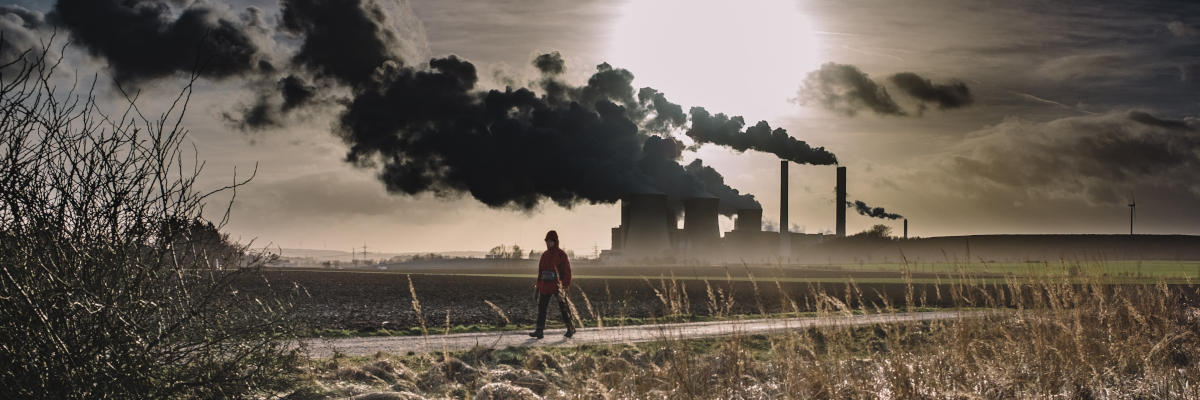We have 12 years
The International Panel on Climate Change (IPCC) report released in October 2018 is “…like getting a troubling diagnosis from your doctor. Every possible test has been done and the news is not good”.
So what is the diagnosis? 12 years to a catastrophe. In this time window we have to change our consumption and production habits and slash global greenhouse gas emissions 45% below 2010 levels. Otherwise by 2030 we are going to face a collapse of many ecosystems, devastating weather extremes and their related impacts, such as crop failures, famine, disease, economic losses, and refugee crises.
12 years! That’s not much, taking into account how a massive and unprecedented transition in production, agriculture, energy and transport sectors has to be undertaken globally. To even start it, we need to find a way to communicate and make joint decisions across regions, countries and continents. How difficult it is has been proven by the recent COP24 talks held in Poland. It took two weeks for the world leaders to settle on the contents of the “rulebook” for putting the 2015 Paris agreement into practice. And yet some of the major oil producers – the US, Russia, Saudi Arabia and Kuwait – still insist on undermining the IPCC’s findings, refusing to take them into account while pursuing the countries economic plans.
If policy-makers are ready to ignore scientific facts, how to make a general audience understand the urgency of the IPCC report? Is it possible to break a vicious circle of ignorance and denial and make people see the threat?
Let’s not depreciate the power of education

There is no single answer to the questions above, as global transition is not a simple equation with only one correct solution. International contracts and guidelines, like the one agreed on at COP24, is one thing. Individual responsibilities and bottom-up activities is another. For example many production trends depend directly on our choices as consumers. Also our daily habits and trivial decisions concerning transportation, diet or domestic heating options may have an impact. What we need as a global society is a wide-ranging environmental, economic and social education and awareness raising that would assist in dispelling myths and misinformation spread by e.g. climate change deniers.
One of the promising bottom-up initiatives that undertakes the difficult task of promoting awareness of global challenges is The Educators’ Challenge competition. Launched by the Swedish foundation Global Challenge, the competition aims to encourage a creative approach towards the major global risks and enhance international cooperation. It gathers thus the most inspiring projects that engage students and broader audiences in discussions on better frameworks of global collaboration. The applicants had an opportunity to submit their projects till June 2018. In Autumn 2018 the list of 12 finalists was announced, which included games, educational programs, comic books and initiatives focused on, e.g. climate change and marine degradation, sustainability or shaping a proactive attitude among kids. On the list of the potential winners there are also two serious games focused on climate change; You Change It, an interactive card game for high school and college students and New Shores – a Game for Democracy, a fantastic multiplayer internet game that we already wrote about before.
What is so special about them that they caught the jury’s attention?
Well, first of all, they are engaging and offer a way to immerse participants in simulated, yet plausible, scenario of what can happen if we chose to ignore the scientific knowledge on anthropogenic climate change. For example, in You Change It, students use specific cards to show whether they decide to produce pollution or not. Their decisions are entered into a computer system by a teacher and as a result may generate a natural catastrophe, forcing players to reconsider their choices and follow a more sustainable path.
Furthermore, serious “climate change” games can help young people render the IPCC abstract “diagnosis” into something real and more related to their lives. For example, in New Shores, players inhabit a fictional island and are free to manage their resources to satisfy their individual or community needs. What has the potential to become the fulfillment of the American Dream, may quickly turn into a nightmare with players competing over resources and distracting the island’s fragile ecological balance. One wrong move, one snap decision and the fictional world is devastated by a series of hurricanes and floods that wipe out players’ households and leave them penniless and dependant on others. In this way, a disastrous scenario anticipated by climate scientists materializes itself not in 12 years but in an hour-long game session, providing players with a lesson that will certainly be long remembered.
How can you use the games for yourself?
The good news is that both games are easily available, which makes them a perfect choice for educators working with the youth. To get instructed how to access and use the You Change It game, contact its producers, the Climate Cost Project. To access and use the New Shores game all you need to do is create a free account on the Edmodo platform and join the virtual New Shores class. It functions similarly to a Facebook group but additionally it allows you to access an e-learning course and additional materials (e.g. a methodological guide for teachers, a comprehensive game-based workshop scenario or a video tutorial for moderators, from which you will learn what game-based learning is, how to log to the moderator’s panel, create a game and manage its functions as well as facilitate dialogue with your students).
What do you think is the potential of initiatives like The Educators Challenge to accelerate transition towards more green solutions and reduction of global greenhouse gas emissions? Which of the presented projects deserves the award (the results will be announced at the beginning of 2019)? Share your opinion in comments!
How did you like this post? Let us know in the comment section or on our social media!
You can also fill this short survey to help us create better content for you!
For more posts about sustainable development visit our Blog and Gamepedia!





